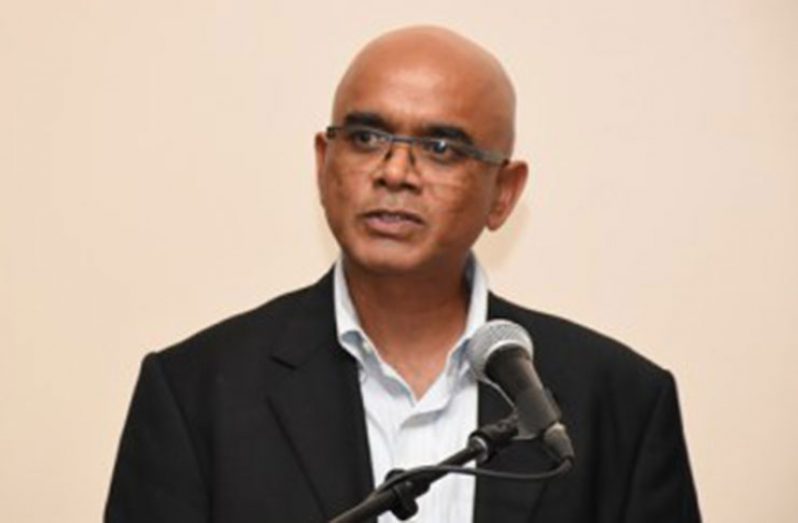The devolution of decision-making to local communities will help to bolster efforts geared at promoting the conversation of Guyana’s natural patrimony, according to Former Executive Director of Conservation International Guyana, Dr. David Singh.
The devolution of the decision making process has been seen over the past few years with the government decentralisation of the local government system, and empowering more communities to become architects of their local affairs.
“When you look at the devolution of decision making in Guyana over the last number of years there has been an increased devolution of decision making to the ground level, enabling organisations to take more ownership,” Dr. Singh explained to the Guyana Chronicle in a recent interview.
This, he said, is a good move in allowing more persons- stakeholders within local communities- to decide how the resources they have to be used. Explaining this, Dr. Singh said: “If you enable rights holders to have greater control of the ecosystems to which they are more connected to, if they have more control over the decisions of those ecosystems, then there is a greater chance that the decisions for those ecosystems will be more sustainable.” And with the government engaging in efforts of decentralising governance and services, he opined that conservation will “work better than ever”.
In simple terms, he related that someone would make better decisions for things that belongs to them instead of other people who make those decisions for those things they have owenership for. Resultantly, he said, if you enable these rights owners to have more control over the decision making of their ecosystems, there is a better chance that those ecosystems will be better managed and maintained over the long term.
“The decision President Granger made on devolving planning and development to regions and local communities is an important decision for conservation,” he stated firmly. Dr. Singh also said that this devolution is only part of the wider and noteworthy commitments of the political leadership of Guyana in bolstering conservation efforts. He made reference to the Low Carbon Development Strategy (LCDS), which was launched in June 2009 and outlined Guyana’s path to a low carbon economy, and now the State Development Strategy (GSDS): Vision 2040, which seeks to guide Guyana’s developmental trajectory. “It is very important for us as Guyanese to recognise that the commitment to sustainable agenda crosses political boundaries and it something as a people we have to be so proud of,” he said.
However, he noted that Guyanese has a responsibility to ensure that the government, regardless of who it is, maintains this kind of commitment to conserving the natural patrimony. He also said that Guyanese need to play a greater role in the decision-making process. The GSDS, which is currently the model that the government intends to use to guide the sustainable development of Guyana alongside its oil and gas industry, needs to have more persons educated on the aims and merits intended from this. At the implementation level specifically, he noted that there needs to be “more detailed conversations” between policy makers and the average citizens.
He also opined that people need to understand what the GSDS, and Guyana’s development pathway, means for them and their communities using relatable metrics like education, health, security and infrastructural development. “To get participation of people in decision making is only as good to the extent to which the people participating have the tools to which they can participate effectively,” the Former CIG boss said. “These tools include understanding what is being discussed and secondly having a reference point outside of themselves.”



.jpg)









